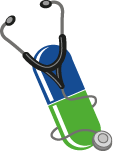Statements 2018
On the occasion of the 2018 European Antibiotic Awareness Day, EAAD partner organisations share how they contribute to the fight against antimicrobial resistance and the prudent use of antibiotics.

European Forum for Primary Care (EFPC)
The largest amount of antibiotics is prescribed in primary care; common viral infections are regularly treated with antibiotics. The EFPC can mobilize its members to strengthen monitoring of AMR and prescribers' education. Read statement
Standing Committee of European doctors (CPME)
Doctors are committed to prescribe antibiotics responsibly, as an inappropriate use of antibiotics may cause the spread of resistant bacteria. Read statement


European Association of Hospital Pharmacists (EAHP)
By utilising the specialised background and knowledge of the hospital pharmacists in antibiotic stewardship teams each hospital can make a contribution to keep antibiotics working for its patients. Read statement
Pharmaceutical group of the EU (PGEU)
Community pharmacists are very committed to tackling AMR and encouraging the prudent use of antimicrobials in their daily practice. They do this through taking preventative actions such as educating patients as to when antibiotics are useful to treat infections and how to safely self-treat common illnesses and non-bacterial infections at home. Read statement
European Pharmaceutical Students’ Association (EPSA)
Providing knowledge important for future healthcare professionals on relevant healthcare and other topics is one of the core aims of our Association. One of the major topics we aim to educate our members on is antibiotic awareness and we do so through different educational activities. Read statement

European Specialist Nurses Organisations (ESNO)
European specialist nurses are strongly committed to put Antimicrobial Resistance at the top of Continuing Professional Development activities. We strongly believe that with an increase of involvement with stewardship, structural, education, information and scaling up communication, we contribute as competent professional to tackle this rapid unfolding drama.

Medicines for Europe
Antibiotics are a medical marvel in combatting bacterial infections, and it is imperative to ensure that existing antibiotics continue to work to patients who rely on them. Read statement
World Organisation for Animal Health (OIE)
Prevention of AMR in farming is critical to human health, as well as to food safety, food security, animal health and animal welfare. Read statement

Federation of Veterinarians of Europe (FVE)
We promote the implementation of best practices to improve the health and welfare of animals and, therefore, to minimise diseases and decrease the need to use antibiotics. Read statement
European Group for Generic Veterinary Medicines (EGGVP)
On this 2018 European Antibiotics Awareness Day, EGGVP confirms its adherence and commitments to contribute fighting against the development of antimicrobial resistance, and will continue to promote the responsible use of veterinary medicines to its members. Read statement
AnimalhealthEurope
As antibiotics are a precious resource for protecting our health and that of our animals, AnimalhealthEurope continues to be a strong advocate for their responsible use, in order to preserve their effectiveness for future generations. Read statement
BEUC, the European Consumer Foundation
The European Parliament last month adopted a long-awaited law which will restrict the use of antimicrobials in food-producing animals and thus help to fight antimicrobial resistance. We hope to see all EU Member States step up their game to end the improper use of veterinary antibiotics in farming. Read statement
SNVEL, l’organisation professionnelle représentative des vétérinaires d’exercice libéral
For many years, we have been involved in the fight against antimicrobial resistance through the "one health" concept. French veterinarians have been major players in the design and implementation of the "ecoantibio" plan, to reduce the use of antibiotics in veterinary medicine between 2012 and 2017. Read statement
AMCRA, the Centre of Expertise on AntiMicrobial Consumption and Resistance in Animals in Belgium
AMCRA published and continuously promotes guidelines, for veterinarians. AMCRA has developed the methodology for benchmarking farmers and veterinarians, creating the conditions for evaluating and adjusting AMU at farm level. Read statement
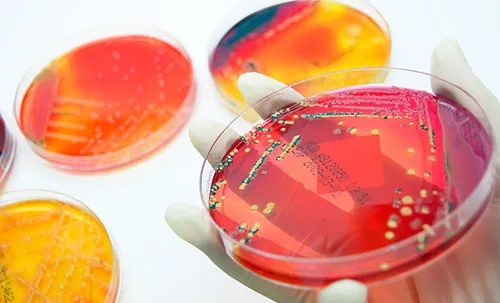
Joint Programming Initiative on Antimicrobial Resistance (JPIAMR)
JPIAMR jointly funds and coordinates national investments to support transnational research and activities Read statement
European Public Health Alliance (EPHA)
The time is ripe to translate the commitments into more concrete actions to bring about tangible results and lasting change.
Action should be taken at different levels: campaigning to raise public awareness about antibiotic use and misuse; promoting inter-sectoral stewardship programmes amongst healthcare professionals; improving infection control and prevention in hospitals and other healthcare settings; and investing in surveillance systems and improved data. Read statement

Alliance for Safe Online Pharmacy in the EU (ASOP EU)
Approximately 96% of the 35,000 websites selling prescription and OTC medicines are not legal and operating out of compliance, and target consumers and patients on any given day. The illegal sale of medicines is a major public health concern and highlights the need to educate patients and caregivers about how the risky misuse of antibiotics from illegal online pharmacies is leading to antibiotic resistance. Read statement

European Association of Hospital Managers (EAHM)
For a successful AMR strategy the hospital manager, being the highest responsible level for patients safety and outcome of the hospital, should be involved, by their personal participation and leadership in the AMR and ABS strategy. Read statement
European Patients' Forum (EPF)
Patient organisations raise awareness of the correct use of medicines; we advocate for patient empowerment, as research shows shared decision-making reduces prescribing of antibiotics; and we call for more patient involvement in efforts to prevent healthcare-associated infections. Read statement
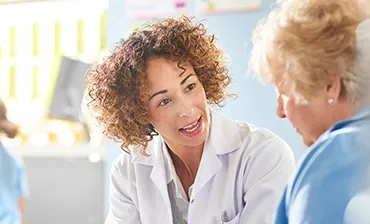
European Hospital and Healthcare Employers’ Association (HOSPEEM)
HOSPEEM stresses the importance of continuous training for all healthcare staff and patients for a better understanding and a more prudent use of antibiotics in hospital settings. Read statement
European Hospital and Healthcare Association (HOPE)
Antibiotic resistant infections are one of the biggest challenges for hospitals and healthcare services to deliver safe and effective healthcare.
At hospital and health and social care facilities level, we believe in combating and preventing infections through a range of interventions like hand hygiene and the use of quality indicators to assess performance and promoting awareness and knowledge-raising among health and social care professionals and the general public. Read statement
European Dental Students’ Association (EDSA)
EDSA supports the idea of defining a set of specific policy interventions based on research and developing an international framework for a global response to AMR. Read statement
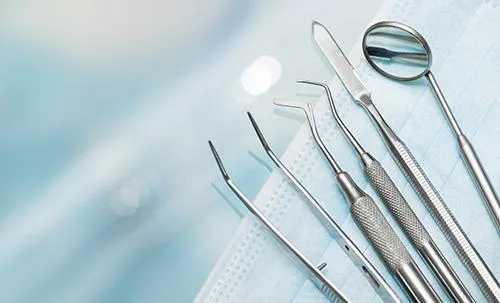
Surgical Infection Society Europe (SIS-E)
Effective antimicrobial agents are needed with both preventive and curative intent, protecting patients from potentially fatal diseases and ensuring that complex procedures such as surgery and chemotherapy can be provided at low risk. Read statement
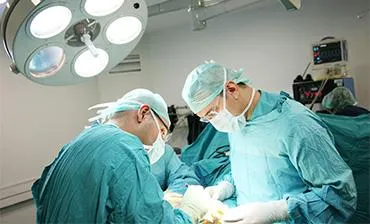
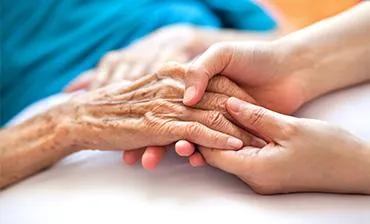
European Institute of Women’s Health (EIWH)
Women play a vital role in all aspects of health, well-being and care as healthcare professionals, caregivers, patients, mothers and friends.They are the traditional family caregivers and can help to promote the prudent use of antibiotics in the family environment. Read statement
European Academy of Paediatrics (EAP)
EAP seeks to promote the health of children and young people across the European continent as well as operating at the European level to defend and promote the interests of Medical Specialists. Read statement
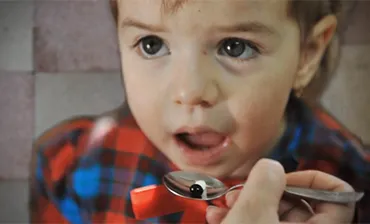
Innovative Medicines Initiative (IMI)
We work by setting up and supporting large-scale, collaborative research and innovation projects. We have a large portfolio of projects dedicated to antimicrobial resistance, where there is an immense public health need coupled with a market failure. Read statement
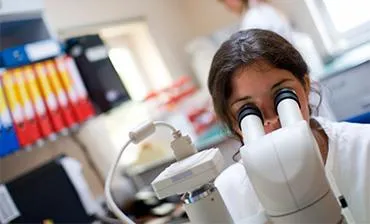
MedTech Europe
Medical technologies can help prevent and control Healthcare Associated Infections as well as detect and identify bacterial infections. Through this we can reduce the need for antibiotics and avoid the misuse of those medications in the first place. Read statement
Vaccines Europe
Existing vaccines reduce the use of antibiotics by preventing infection in the first place. New vaccines will play a critical role in preventing infection with multi-drug resistant bacteria. Read statement
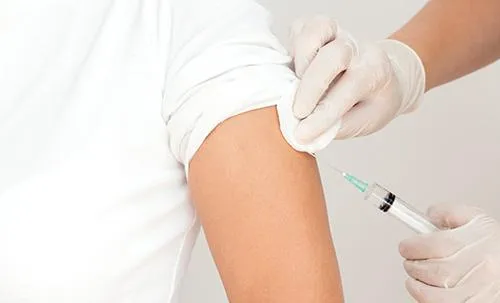
European Medical Students’ Association (EMSA)
A comprehensive education on the scale of AMR, the one health approach and the importance of inter-professional collaboration is still not systematically included in healthcare students’ curriculum in most European countries. Read statement


International Federation of Anthroposophic Medical Associations (IVAA)
Anthroposophic approach strengthens self-healing ability of the human organism to cope with diseases and it involves lower prescription rates of antimicrobials by providing treatment with natural medicinal products. Read statement
European Central Council of Homeopaths (ECCH)
Homeopathy can play an important role in reducing the global reliance on antibiotics by promoting good health, strengthening the immune system, increasing the resilience of the self-healing ability of the body treating acute infections like for example upper respiratory tract infections in children. Read statement
EUROCAM
Infection is always the result of two factors: exposure to a pathogen and a person’s individual susceptibility.
In building and maintaining resistance to infectious illness, Complementary and Alternative Medicine (CAM) therapies have an important role to play here because they mobilise and stimulate the self-regulating capacity of the organism, thus increasing its resilience. Basic requirements to keep the immune system strong include quality sleep, regular exercise, healthy food, relaxation practice and healthy relationships.
Greater resilience leads to a swift and sustained recovery from infections and a reduced susceptibility to future infections and less antibiotics. Read statement
Health Care Without Harm Europe
Whilst there is growing debate and media attention around the issue of pharmaceutical pollution and AMR - now is the time for political action. We believe that all stakeholders – including policy makers, the healthcare sector, pharmaceutical manufacturers, and civil society – have a role to play to keep antibiotics working for us and for future generations. Read statement
Self-Care Initiative Europe
Self-Care Initiative Europe are therefore proud to take part in European Antibiotic Awareness Day, by promoting how citizens can act everyday to prevent infections, navigate symptoms, and use patience as part of their self-care. Read statement
European Study Group for Antimicrobial Stewardship (ESCMID)
We promote education and research activities on the topic of antimicrobial stewardship, and aim at sharingknowledge and experiences.

